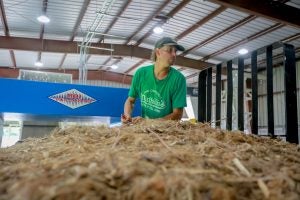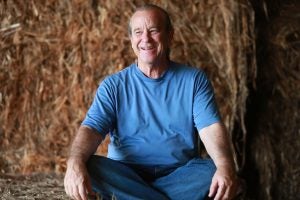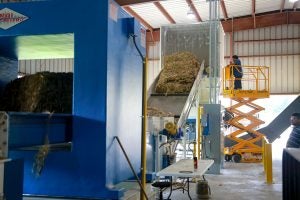More and more farmers are putting up their tractors, selling land, or doing whatever it takes to make ends meet. This is especially true of tobacco farmers as the tobacco industry limits the number of acres produced and the profits earned. However, hemp farming, legalized in the 2018 Farm Bill, could change that decline.
Tony Finch, a former tobacco farmer turned hemp farmer, is proof that money can be made in the industry with hard work.
“I hate to see small farmers, just like me, going out of business when they could have tried growing hemp,” Finch said. He grew his second crop this past year and had a successful harvest.
There are misconceptions and misunderstandings of hemp itself, hemp farming, and the farmers who grow it.
“Hemp doesn’t have any drug attributes or psychotropic natures,” said Jason Amatucci, founder of Virginia Industrial Hemp Coalition. “Our product does not even make anything psychotropic like corn making whiskey or grapes making wine. It just looks like something else.”
Amatucci also explained that the 2018 Farm Bill moved hemp of 0.3 THC (the plant’s intoxicating ingredient) or lower, off the controlled substance act and made it an agricultural commodity. The change in the Farm Bill allows for the import and export of seed and provides a way for states to manage licenses for growers. It also allows banks and insurers to list it as a commodity, Amatucci explained.
“At the end of the day, U.S. Code is law and our laws are clear: Hemp is not a controlled substance. It’s a legal crop to grow, and you can’t prohibit it from going through states. Those things came clear as day from the Farm Bill,” Amatucci said.

This change is expected to lead to more growth in the industry. And growth is exactly what farmers in traditional tobacco regions need right now. Dropping demand for tobacco and increasing demand for hemp is beneficial for farmers. Finch said that most farmers in his area started looking at hemp out of desperation for another crop to grow.
“The money you can make in hemp, if you do it correctly and have a good crop, is very appealing,” he said.
“The average small family farm in North Carolina makes $22,000 a year. With hemp you can make a million a year, off five acres, once you get it down,” said Bruce Perlowin, CEO of Hemp Inc.

The transition from tobacco to hemp, while challenging, is possible if farmers are willing to learn. Finch said this year will be his third-year growing hemp and each year he feels more comfortable with the process. He said his first year was not successful at all, but he preserved and continued trying.
“The barrier to entrance is knowledge,” Perlowin said. “The knowledge of what to do and how to do it. And to not make any of the $50 million mistakes.”
Another challenge is the testing of hemp being used for its non-psychoactive CBD oil. Hemp must test below a threshold of 0.3 percent THC. If a crop tests higher than that, it must be destroyed. The threshold can vary based on the strain grown along with environmental stressors. Since CBD oil is a strong market right now (it can be used medicinally), there are numerous farmers wanting to grow it, but the testing proves challenging.
The biggest benefit tobacco farmers have in growing hemp is through their infrastructure.
“You can’t grow a substantial acreage of hemp without a huge square footage space to dry it in, it has to hang for a week and then be cured. In the tobacco region every farmer has access to a tobacco drying barn. All you do differently, is not turn the heat on,” Perlowin said.

Another benefit is the similarities between the two plants, allowing for equipment and knowledge to be repurposed. Perlowin explained that in non-tobacco areas, hemp must be handplanted, but tobacco transplanters can be used to plant hemp on a large scale. “A whole lot of the old knowledge from where I grew tobacco all my life is translating over into hemp,” said Finch.
His advice is to ask questions of other farmers growing hemp, but still trust your farmer’s gut when making decisions. Perlowin and Amatucci, along with farmers like Finch, also suggested consulting with other experts before investing completely in hemp since it is still a new crop. They both believe there is only growth to come for at least a few more years for the hemp industry and for the farmers growing hemp.
“At the end of the day, if a farmer can grow something that makes a profit, that’s a good thing,” Finch said.
Michelle Bufkin is a freelance communication specialist whose goal is to help producers bridge the farm-to-plate knowledge gap that exists with consumers today. She uses her full-time position as the Membership and Communication Director at the Arkansas Cattlemen’s Association to interact with producers and work on building that connection.


